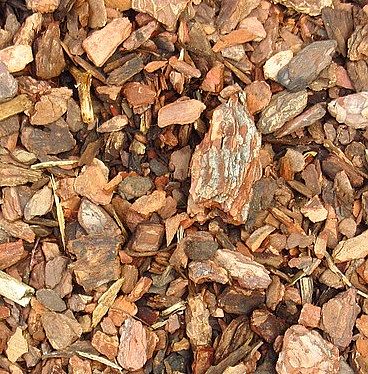The bark biofilter plant is treated from different types of bark, mainly pine. This material undergoes a process of screening and calibration. This process cleans the impurities of the material, separating the branches and other impurities which may be found.
COMPOSITION
BURÉS PROFESIONAL, S.A., has created the Pine Bark Biofilter product from a mixture of different bark particle sizes plus subsequent treatment in the plant to obtain a material that can absorb the odoriferous compounds and other pollutants from the residual air stream. The free-living microorganisms that proliferate naturally in this organic material use these compounds as a source of nutrients and energy, via aerobic decomposition.
In Burés’s plant, the pine bark is selected and conditioned to ensure the ideal characteristics for its use as a biofiltration bedding. It undergoes an exhaustive calibration process to ensure adequate and homogeneous particle sizing, which is very important for guaranteeing correct surface adsorption and the minimum resistance to gas circulation.
This uniformity is obtained from an automatic classification system based on the particle size of the material, eliminating fine elements.
Increasing the specific surface area of the biofiltration bedding material enhances the creation of a concentration gradient in the biofilm, which maintains a continuous flow of mass from the gas components to the wet biofilm.
ADVANTAGES AND APLICATIONS
This product can be used as a filling material, or as a layer of a multilayer biofiltration.
Biofiltration is a very versatile technique, able to treat odours (ammoniac…), toxic compounds and volatile organic compounds.
The efficiency of the treatment of this elements is higher than 90-95% for low contaminant concentration (<1.00ppm).
The biofilters offered by BURÉS PROFESIONAL, S.A. is a technological alternative respectful with the environment, with an effective control of the atmosphere’s and odours contamination. Some of its great advantages are the following:
• Simple technology and low application cost; economically available to all business.
• High efficiency of volatile contaminants and odoriferous complexes elimination.
• Odoriferous contamination control.
• Nearly null maintenance of the biofilter is required.
• Total decomposition of the contaminants without secondary products creation through the Biofiltering process.
• The filling material is organic, non toxic and biodegradable through composting once its useful life is over.
USED BIOFILTER WASTE
Once the useful life of the biofilter is exhausted, we take care of the management of organic or inorganic remains.
We are dealers in Spain, Portugal, France, Germany, Italy, Bulgaria, Tunisia, …
The pore size of the pine bark is ideal for absorbing odoriferous molecules and other contaminants, which is why it is usually used as a component or "activating layer" in multilayer biofiltration systems.
Burés's biofiltration materials are extremely stable, with very slow physical and microbiological alteration of their properties over time, so there is practically no compaction of the bedding in the long term.
The correct physico-chemical conditions must be created and maintained to enable the microbiota to proliferate on the bedding material. The essential parameters are temperature, pH, humidity and quantity of nutrients.
Moisture
It can be humidified before going into the bedding using a water mist system, humidification chamber, bio-scrubber or biological hydrophilic. The humidity that must be maintained in the biofiltration bedding varies between 50-70%.
Temperature
In general, the most common microorganisms in a biofilm are mesophiles, which can grow in a temperature of between 15 and 45°C and have optimum growth at between 30-40°C, therefore the temperature of the bedding should be maintained within these values.
Particle size
The optimum particle size must be found that, depending on the type of material, gives the biofilter the largest specific surface area, making it especially useful for purifying very few or no water-soluble compounds.
The performance and useful life of the biofilter depends on the type of pollutant and its mass load, although BURÉS PROFESIONAL, S.A. recommends a shelf life for the filling material of between 3-5 years depending on the environmental conditions. After this period the material used can be simply composted without any special treatment.
Format / Sizing:
Granulometry> 40 mm
Ref: P15180
Granulometry 10/40 mm
Ref: P1590
Granulometry 40/60 mm
Ref: P1595
Granulometry 25/40 mm
Ref: 15200


